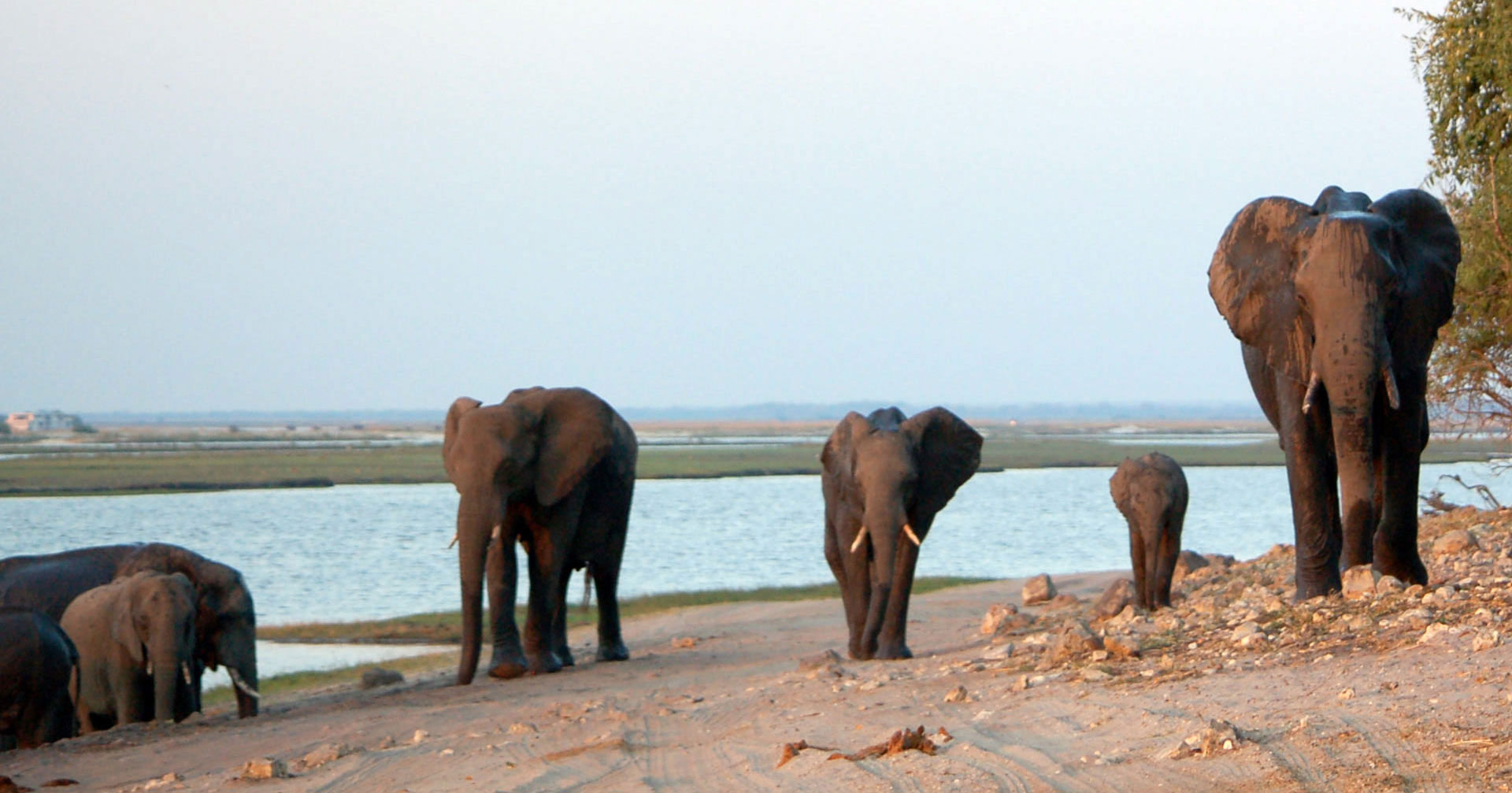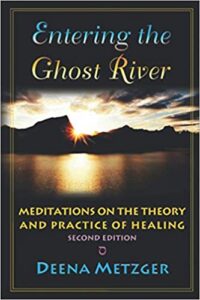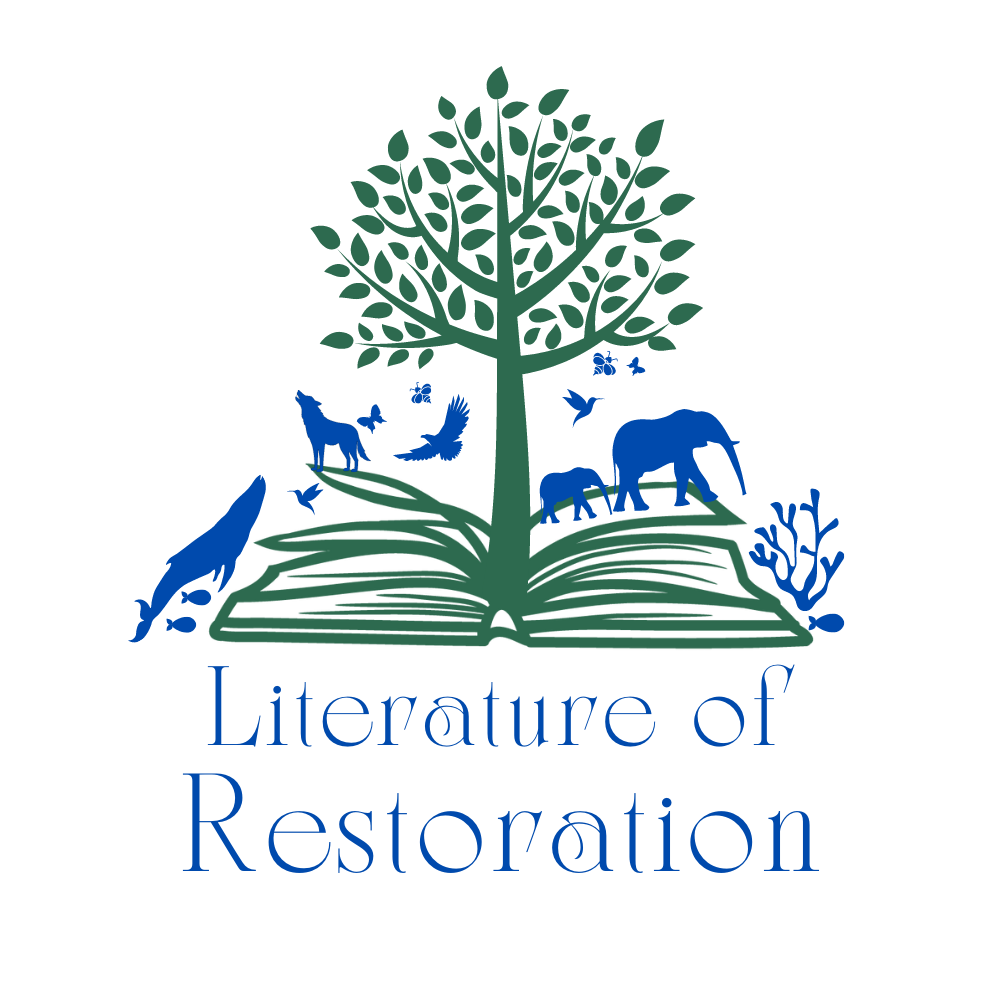Entering the Ghost River
Entering the Ghost River: Meditations on the Theory and Practice of Healing is sponsored by Mandlovu, a non-profit educational member organization of International Humanities Center (IHCenter). Mandlovu was created to support visionary artists, writers, and healers who are committed to the exploration, revitalization, and preservation of indigenous wisdom and medicine traditions as paths to planetary healing and peacemaking on behalf of all beings. Because of the global challenge of these most difficult times, Mandlovu’s goal is to sustain those teachers and practitioners whose work is devoted to the generation and manifestation of new forms of consciousness.
Entering the Ghost River is available on Amazon.com. You may also order from Book Clearing House, 800-431-1579 or visit their website or order through your favorite independent bookstore. For further information please write to ghostriver@verizon.net
| The cost of this book reflects the cost of materials and essential labor undertaken by the community around Daré and Hand to Hand. We would greatly appreciate contributions to support the publication and distribution of this book. Make tax-deductible donations to Mandlovu – Hand to Hand c/o International Humanities Center – P.O. Box 923, Malibu, CA 90265.
As this book arises from the desire to meet the great need of these times, it is our hope that you will join us in all ways you can in our labor to bring the book to the community and to those who will be informed and sustained by it. Please tell your friends and your colleagues. |
Read the Introduction to Entering the Ghost River
September 11th called this book into being. At the threshold of a sabbatical, I changed direction entirely and gave more than the next six months to writing this book on the practice of healing. I wrote it, as the times demanded, without inhibition, calling myself, on a daily basis, to the courage and stamina it takes to say what must be said. Entering the Ghost River was written during the period of shellshock that afflicted the country. Trauma immobilizes and confuses its victims, distorting their responses and behavior until the trauma is healed. Time does not heal traumas, consciousness does. As the nation tried to understand and assimilate the attack, other forces, perhaps deliberately taking advantage of the situation, or overwhelmed by fear and helplessness, began creating measures that could further immobilize the population by undermining the Bill of Rights. A line from my last book, The Other Hand, began repeating itself in my mind when I learned that the U.S. government is contemplating using nuclear weapons in an ongoing war they are planning: “We have taken the building blocks of creation and made a bomb of them.” Terrorism from without has instigated terror within. Never before in our nation’s history, not even after Pearl Harbor, has it been so clear that the voices, nature and activity of healing and Council need to be called forth.
In the last years, I have been concerned with the state of publishing in America. I was raised with great pride in the freedoms associated with this country. Not a small influence on my becoming a writer is the sacred responsibility to act on behalf of justice and compassion. In the largest sense, the mandate is to search out and reveal truth in all its forms, no less the revelation of beauty than the examination of suffering. But increasingly, I became aware of the ways in which publishing is no longer devoted to the freedoms that are essential to an informed and self-governing society. It wasn’t the kind of political repression that characterizes so many tyrannical governments of the modern world that concerned me earlier, but the impact of economic values that were amounting to censorship as large corporate conglomerates began to dominate the publishing arena, financially and conceptually, converting the book from a gift into a commodity. Increasingly, the wisdom and acuity of fine editors are being replaced by the no-nonsense authority of publicity and promotion departments devoted to the profit margin. What must be said is so often modified by or replaced by what salesmen say will sell.
With these concerns, I often speculated on the tradition of the Samizdat, the mimeographed manuscripts that were secretly circulated at great risk in the Soviet Union during the time of Stalin and afterwards. Many of them made their desperate way to the West so that we were apprised of the horrors of Soviet life, creating great sympathy and support for those suffering under extreme oppression. And, within the Soviet Union, certainly they were the means through which consciousness and hope were carried until such time that a free press might emerge.
When Entering the Ghost River was finished, I sent it to an agent and then before she had a chance to read the manuscript, I withdrew it. Many events, not the least of which was the threatened shredding in January, 2002 of seventy-five thousand copies of Michael Moore’s book, Stupid White Men that, among other things, outlined the stolen Presidential election of George W. Bush and presaged the Enron scandal and the administration’s involvement in it. Stupid White Men was to have been published in September but the September 11th bombing and the political response of the government frightened or inhibited the publisher, Harper Collins. A huge non-partisan e-mail protest finally obligated the publisher to publish the book on February 19, 2002 without, thankfully, any of the extreme modifications that the publisher had demanded until that time.
Entering the Ghost River embodies work on healing that I have been developing over the last ten years, and that has realized an unexpected applicability since 9/11. And as the ways of healing are newly understood, so is the nature of disease, both personal and political. Given the times, I felt a great sense of urgency, but it was not only the urgency of concern, it was the urgency of hope. I saw that September 11th could also become a vehicle for deep soul searching and self-scrutiny and I saw that the book could assist us in the practice of transformation and peacemaking. The gift came through me, from ‘elsewhere’, from the Divine, from the spirits, unimpeded, and I thought that I must offer it to the world in the same way – as a gift, and unimpeded, and with the same speed and urgency that it was offered to me. Eschewing all practical and economic considerations, I saw that I was being called, for the first time in my life, to bring the book out as a private edition so that it would not be subject to censorship or delay.
That is how Hand to Hand came to be. Originally, I had thought of using the name Samizdat, but friends pointed out that this carried a sense of reactivity when the feeling we wanted to communicate was of generosity and possibility. “Samizdat implies manuscripts being passed hand to hand,” I said in defense, and instantly understood what the imprint was to be. In the process of imagining this private edition, I realized that we could be creating a form and a vehicle for other self-published works – books, plays, music, performances, films – that have at their core the necessity of saying what must be said and the commitment of the authors and the community. Hand to Hand is grounded in Daré which is one of the subjects of this book. Daré, meaning Council in the Shona language of Zimbabwe, is the means through which healing is restored to the center of the community where it belongs. Or it is a community that coheres around Council and healing. Hand to Hand restores the word to the community from which it originates, which it serves and where it belongs. The word coheres a community and the community offers the word a basis for its existence.
In the last years, I have received instructions from the ancestors and from indigenous peoples concerned for the planet on how to live an ethical and useful life: Teach the pattern and put the forms in place. Hand to Hand, like Daré, comes out of this injunction.
My vision is that this book will be passed from hand to hand so that it will be received by those for whom it will matter. I imagine the book as the beginning of the kind of conversation or council that takes place at Daré where we tell each other what really matters in our lives, and where we are each deeply affected by the interchange and the wisdom that resides in each individual. I imagine readings or public events that will end in Council so that the people in the audience will become a community through the contemplation and response to what is of deep concern to them all. A book, an Imprint, a venture that has the possibility of creating camaraderie on matters of heart, soul and our very survival. A book and an imprint that points toward and awakens hope and possibility. And so I offer this to you, hand to hand.
Read an Excerpt from Chapter 1
Those who come to him for healing may also be suffering from distress or illness in the way Augustine suffered when the spirits were calling him forth. Or they are suffering the way he sometimes suffers now when the pain of his people or the world is too much for him and he knows that he, also, is being called even further into initiation so that he can carry what he must carry. Within hours of our second meeting in December, 1998, he fell into my arms weeping; he had not, until this moment when Michael and I had arrived, had anywhere to place his grief. He speaks of this state as ‘the spirits being heavy’ upon him. When he sees this in people, his healing work is to bring them into alliance with the call that is coming from Spirit. Being in relationship to the spirits is the essential purpose of initiation. Sometimes one heals the body and sometimes one calls the afflicted one to initiation.
Michael Ortiz Hill, and I returned to Zimbabwe and Botswana in August, 2001. During our stay, several Americans and Canadians came to Zimbabwe to undergo initiation with Augustine and ourselves. Located in Bulawayo, Zimbabwe’s second largest city, we traveled to some of the sacred sites as well as to wild animal preserves. So it was that six of us from North America were involved in a parallel story when the world as we know it changed forever. On September 11th, we were in Masvingo, the great 15th century Shona ruin of Empire.
At the time when the planes hit the towers, seven of us, Augustine, Michael, myself, Robin Wilds from Canada, Chuck Madansky and Wilderness Sarchild from Massachusetts, and Laura Bellmay from Connecticut, were engaged in fierce ritual work. Two stories intersected in that moment: a story streaming toward destruction and a story streaming toward healing. It is this point, this intersection of stories, the cataclysm, the possibilities, that is the subject of this piece. Two stories, separated by geography but not by time, becoming one story or shattering into a thousand broken shards. We are all in a story, this story now. What story led us to September 11th? What story can lead us away?
There is a silence that is the heart of God. And there is another kind of silence that kills. We were shattered when we came home from Africa, but also we had been restored. We had been broken down, we had been reconstituted. Story can do this; it can take the sharp slivers and the shards and organize them into a light. This is a book or it is letter or it is a long conversation. A memoir, a series of stories, a meditation on despair and beauty and hope. A book of healing. A communication with the spirits. Words. Words that are or are not created from the Holy Letters. An invocation. An act of alchemy. A prayer.
I had not intended to write this book but within days of returning home, it had insisted itself. Or the spirits said, this is the time to write of such things. Write about Story and the way it can cohere the world. Write about Healing. Write about Initiation. Write about stepping forth, about saying, Yes, this is the time. Yes, here I am. Each day, I fought it and each day, I acquiesced. The spirits said we should speak with each other, we should open our hearts. We have come to this. Our lives are at stake. Our children’s teeth are set on edge. Everything we love is threatened. Still there is that silence in the heart of God from which creation like an avalanche of white water endlessly pours.
September 11, 2001. The towers collapse. We are devastated. An opportunity in the rubble. Not to reconstruct the old forms. But to construct something new. Something that is healing for the world. What might it be? Will we do it? Or will we retaliate and continue the cycle of violence that comes from us as much as from ‘the others.’ What is Spirit asking of us? In Zimbabwe, we were asking, “What does it mean to be a peacemaker? What is healing?” Then the planes hit. The questions become urgent.



